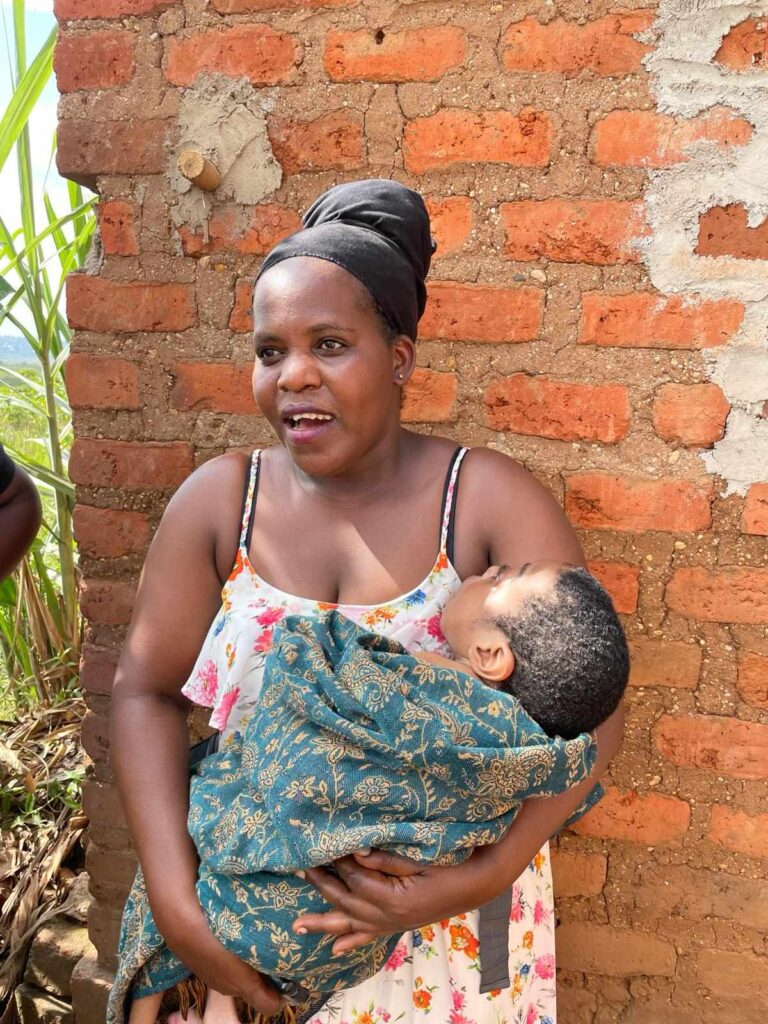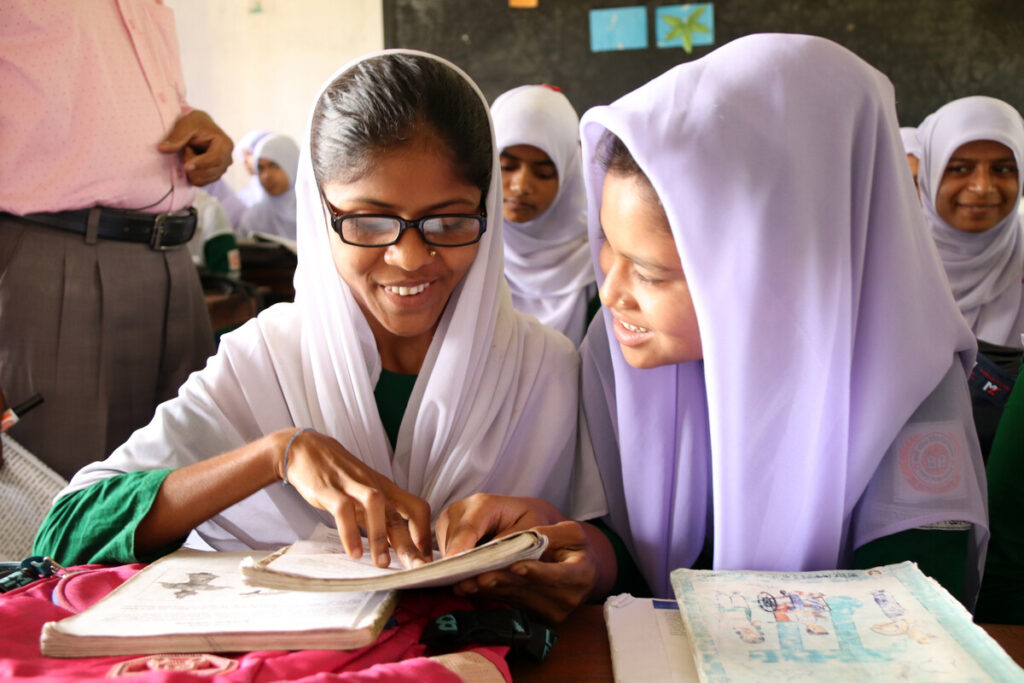Calling for meaningful inclusion of women and girls with disabilities
8 March 2024
Blog by Kavita Prasad, Director of Sense International
International Women’s Day serves as a reminder of the ongoing struggle for women’s rights, particularly for women and girls with disabilities.
This year’s theme of “Inspire Inclusion” could not be a more fitting theme for the work we do at Sense International advocating for all women, including those with disabilities, to be valued and fully included and for their work, achievements and contributions to be recognised and celebrated.
Despite progress in recent decades, including under the Sustainable Development Agenda, we as a global community are far from achieving gender equality. We see first-hand how women and girls, particularly those with disabilities, continue to face significant disparities including unequal pay, unequal access to healthcare, education and employment. They disproportionately bear the burden of unpaid domestic and care work – (on average 84% of primary caregivers are women). If we overlay the disadvantages of poverty and inequity in low-middle income countries, we see some of the widest gaps in gender equality, which Covid-19 has exacerbated.
While in Uganda, I visited the home of Judith and her young child, Francis, in a small village in Masaka. A small family with a big heart and an incredible story. When I saw Francis, I thought he probably was 6-7 months old but his mother told me he is 5 years old. He is the second of Judith’s two children and the only brother to a 14-year-old sister who is at school.

Judith is the sole earner of this family of three. The father abandoned the family when he realised Francis was a child with additional needs. Judith had a difficult birth with Francis and was told by the doctors that her baby is unable to see or hear. She left the hospital feeling helpless, alone and unsupported.
Judith’s life had changed overnight with no one willing to care for her child even for an hour which meaning she was unable to work or attend any community gatherings. Judith’s story confirms our research that caregivers of children with deafblindness, largely women, spend more time caring for the child and have less time to work and earn a living. When coupled with the stigma and discrimination associated with disability, this makes them some of the most marginalised in society.
Through our early intervention programme, Francis is now receiving the support he needs. With Sense International’s support, Judith has been able to return to her work as a tailor and expressed her joy and gratitude to Sense International for the support provided to her:
“I am so happy for Sense International, I feel I have a family I belong to; I no longer feel lonely because the special needs teacher and the programme officer visit me here frequently, they have given me a lot of courage and hope in Francis, I feel stronger now than before…”
Judith
Sadly, Judith’s story is not unique, it represents the struggles and journeys of hundreds and thousands of women we meet each day – women, who have shown courage and resilience in systems that have overlooked, forgotten and excluded them.
Around the world 129 million girls are not in school, including 32 million of primary school age. The recent World Report on Deafblindness highlights that only 20% of children with deafblindness of primary school age attend school compared to 75% children without disabilities, with girls with disabilities more likely to be out of school than boys with disabilities.
The barriers to girls accessing education include poverty, child marriage and gender-based violence. In the settings we work, schools do not meet the safety, hygiene or sanitation needs of girls nor are the teaching practices and learning methods gender and disability inclusive. This is an injustice that Sense International challenges by working with schools and local authorities to ensure girls with disabilities have equal access to quality education and are not left behind.
Our work has brought transformational change to many lives, such as Morium from Bangladesh, who due to deteriorating eyesight and hearing loss was on the verge of being taken out of school.
Aged nine, her future looked similar to that of tens of thousands of children with disabilities across Bangladesh – a lifetime of isolation with no opportunities to learn and thrive.
Morium was referred to Sense International’s national partner in Bangladesh, Centre for Disability in Development (CDD) and identified with deafblindness. CDD supported Morium and ensured she stayed in school by adapting teaching and learning methods to better suit Morium’s learning needs. Morium was also supported with hearing aids and glasses.

With unwavering determination and the guidance of her special educator, Morium not only passed her Primary School Certificate examination but also became one of the first girls with deafblindness in Bangladesh to progress to high school.
This International Women’s Day, with the fitting theme of ‘Inclusion’, we are calling for more meaningful and equitable inclusion of women and girls with disabilities in all aspects of life, to uphold their rights and create a just world for all.
We at Sense International are fighting this fight everyday alongside the people we work with, sharing their stories and amplifying their voices to advocate for change.
We urge you to support us as we bring about transformational change so that women and girls like Judith and Morium are meaningfully included and not left behind.
